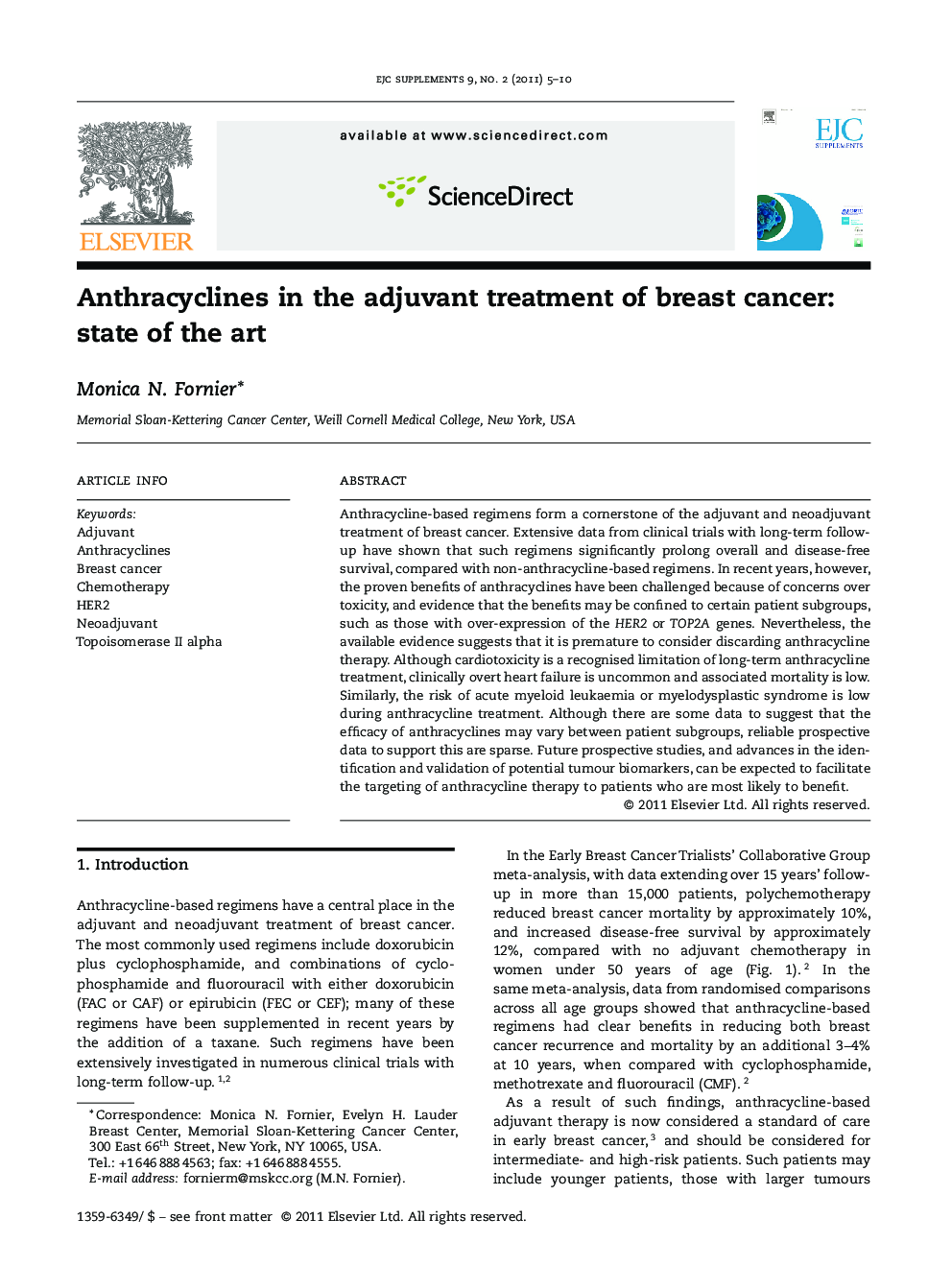| Article ID | Journal | Published Year | Pages | File Type |
|---|---|---|---|---|
| 2127881 | European Journal of Cancer Supplements | 2011 | 6 Pages |
Anthracycline-based regimens form a cornerstone of the adjuvant and neoadjuvant treatment of breast cancer. Extensive data from clinical trials with long-term follow-up have shown that such regimens significantly prolong overall and disease-free survival, compared with non-anthracycline-based regimens. In recent years, however, the proven benefits of anthracyclines have been challenged because of concerns over toxicity, and evidence that the benefits may be confined to certain patient subgroups, such as those with over-expression of the HER2 or TOP2A genes. Nevertheless, the available evidence suggests that it is premature to consider discarding anthracycline therapy. Although cardiotoxicity is a recognised limitation of long-term anthracycline treatment, clinically overt heart failure is uncommon and associated mortality is low. Similarly, the risk of acute myeloid leukaemia or myelodysplastic syndrome is low during anthracycline treatment. Although there are some data to suggest that the efficacy of anthracyclines may vary between patient subgroups, reliable prospective data to support this are sparse. Future prospective studies, and advances in the identification and validation of potential tumour biomarkers, can be expected to facilitate the targeting of anthracycline therapy to patients who are most likely to benefit.
